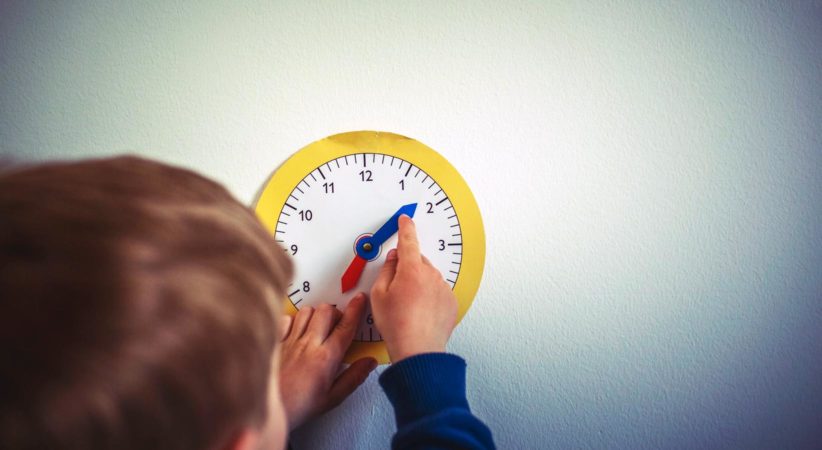
Teaching Time
Calendars, clocks and the passage of time are a part of our daily lives. Learning to make sense of time is not only necessary for children to develop time management, it’s also an opportunity to practice numeracy skills. Clocks can introduce the notion of skip counting (5, 10, 15, 20). They also introduce the concept of fractions as well as basic addition and multiplication. Learning time also goes beyond the minutes and hours of each day. Children also need to learn days, weeks, months, seasons and so on.
Teaching a child time is a gradual process. The concept of time is abstract and therefore difficult for younger children to grasp. It’s important to start with age appropriate lessons and games. Children need to first learn how time relates to their own experiences before graduating to the more abstract concepts of telling time.
Ideas for introducing time
- Draw attention to time by pointing out different parts of the day. For example, “It’s five o’clock, time for supper,” or “It’s seven o-clock, time for your bath!”
- Play games that use sand timers to help children feel the passage of time.
- Use a timer for cooking, baking or other activities.
- Make sure your child is comfortable with counting from one to 60 before attempting to learn to read a clock. Learning to count by fives (skip counting) will also help.
- Make a family calendar. You can colour code for each family member and add colourful stickers for seasons or special days. Get creative with it and keep it fun! Children can also cross off each day to help learn the passage of time.
Check out the resources below for even more activities that help teach children to tell time.
Resources
- Ages & Stages: How Children Develop a Sense of Time
- 15 Meaningful Hands-On Ways to Teach Telling Time
- Clock and calendar skills : teaching time to special students
- It’s time (to learn about time)
- Learning About the Seasons
- Making Clocks: Early Years (Age 3 – 6)
- Simple Clock Activities for Learning to Tell Time
- Teaching the Concept of Time to Preschoolers
- Understanding the Calendar: The First Step in Learning to Tell Time
Related Blog Posts
Diverse Books for Children
Diverse books are good for all children. They allow children to see themselves and the experiences of others.
Loose Parts Play Indoors and Outside
Loose parts play is unstructured play that invites children to be imaginative and creative.
Science at Home
What can you learn about science at home? A lot! With schools closed and children learning from home, many new science learning resources for use at home have been created. …
